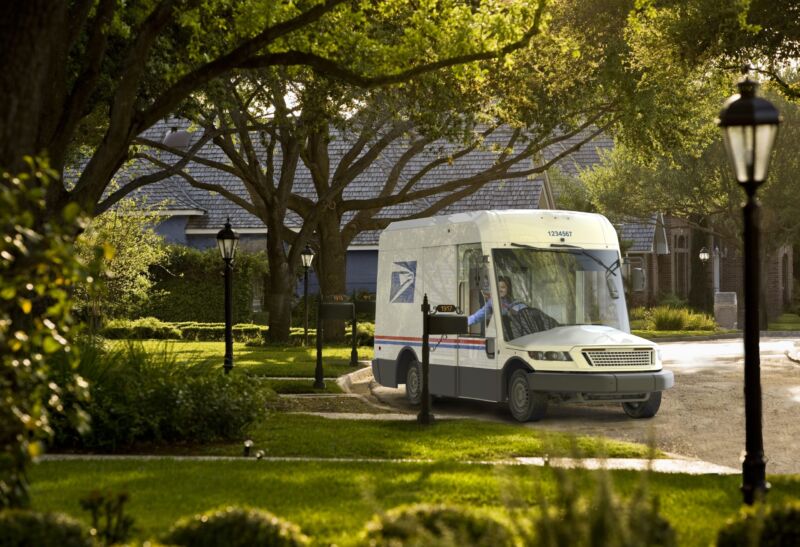USPS sticks with decision to buy inefficient 8.6 mpg trucks

In February 2021, the United States Postal Service made a controversial decision to replace its fleet of aging and inefficient mail trucks with a new fleet made up almost entirely of new, inefficient diesel mail trucks. Although the vast majority of USPS delivery routes are ideally suited for electric vehicles, the USPS decided that a mere 10 percent of the planned order would be battery electric.
In early February 2022, that decision resulted in severe criticism from the US Environmental Protection Agency and the White House Council on Environmental Quality, who accused the Postal Service of failing to properly examine the environmental impact of its decision, as required by law.
This week, the USPS released its final record of decision and record of environmental consideration for the Next Generation Delivery Vehicle purchase. And it’s bad news for anyone who cares about climate change or air pollution, as the Postal Service has dug in and refuses to alter its plans. That means that 90 percent of the 50,000-165,000 NGDVs that are being ordered will use gasoline and will only average 8.6 mpg (28.86 L/100 km) when used with air conditioning.
In the EPA’s letter to the Postal Service, the agency told the USPS that it should open a new public comment period and requested a public hearing on the NGDV decision.
The USPS has now rejected the EPA’s demands, claiming that just because the “EPA disagrees with the Postal Service’s conclusions does not change the fact that the Postal Service’s analyses and assumptions are reasonable, based on credible sources, and reflect the Postal Service’s superior expertise and extensive experience in the field of postal logistics and procurement.”
The USPS also complained about the timing of the EPA and CEQ’s complaints, and it continues to plead poverty as the reason that it cannot order more than 5,000 EVs. The report also says the Postal Service has now considered and rejected the idea of buying a commercial off-the-shelf alternative like Ford’s new electric e-Transit van, claiming that the e-Transit—which Ars drove last month—is not yet to market.
The USPS also complained about the EPA’s assessment of the NGDV’s terrible fuel efficiency, claiming that it would only be fair to compare its fuel mileage when not running air conditioning. That number is 14.7 mpg (16.00 L/100 km). The report makes no mention of disabling the air conditioning for all NGDVs once they reach service, however.
“The Biden administration, Congress, environmental and public health groups, and air regulators have made it clear that electrifying the Postal Service must be a top priority for climate and public health. Refusing to hold a public hearing on such a flawed and controversial plan speaks volumes about the ill intentions of Postmaster Louis DeJoy,” said Katherine García, the Sierra Club’s Clean Transportation for All director. “There should be no reason this plan is moving forward in 2022,” she said in a statement.
President Joe Biden remains unable to replace Postmaster Louis DeJoy due to the latter’s continued support from the USPS’s Board of Governors.
https://arstechnica.com/?p=1836404